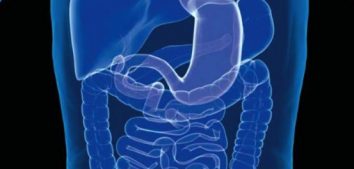
Do You Have to Eat 5 Meals a Day?
You often ask how many meals a day you should eat and what breaks you should have between them. Remember that each body is different and it is to a large extent an individual matter which also depends on the preferences, lifestyle and rhythm of the day of each of us. There are several ways to plan well-balanced meals over time.
The 5-meals-a-day rule
The main and widely recommended rule is a properly balanced diet consisting of 5 meals eaten every 3 – 4 hours. Breakfast should be eaten within 1 hour of waking up, subsequent meals every 3 hours (2 – 4 hours), and the last meal at least 2-3 hours before going to bed. However, not everyone is able to prepare and/or eat as many as 5 meals a day. However, this model of nutrition is especially recommended for children and adolescents in the period of growth and development, as well as pregnant and breastfeeding women, people suffering from diabetes, people with eating disorders and seniors. More frequent meals are also recommended for people who have intense training routine. Short breaks are also perfect for those who feel hungry between meals and are prone to snacking. Distributing small meals more frequently will thus prevent you from feeling hungry all the time. Small portions will also have a positive effect on the digestive process. However, nowadays, due to the lack of time, such a model of nutrition will not work for everyone.

Fewer meals and weight loss
We should remember that the question of the number of meals is secondary to the proper balance of the diet, the quality of the food consumed and the nutritional density of the meals. When it’s not possible to prepare and eat five meals, you can reduce them to 4 or 3 regular meals. The Intermittent Fasting (IF) diet is also an increasingly recommended model of nutrition. It involves periodic fasts and alternating them with eating windows. The IF diet consists of 3 healthy and balanced meals consumed within 8 hours. The next eating window comes after a 16-hour fast, i.e. the break from eating. The IF diet can also be used in the 14/10 and 18/6 schedule. Studies have shown that IF is not only effective in weight loss but also has positive health benefits. It has been shown that longer intervals between meals may contribute to increased insulin sensitivity. Moreover, a reduction in total cholesterol, LDL cholesterol and triglycerides was also observed in the group of people using intermittent fasting. However, the results obtained are comparable to a healthy, balanced weight loss diet which consists of more meals.
As you can see, 5 meals a day is not the only key to success and each method has its advantages. Remember that the proper calorific value and the balance of macronutrients such as proteins, fats and carbohydrates is much more important than the number of meals. Diet should be adjusted to age, gender, level of physical activity, health, and individual factors. You should listen to your body, trying different options in order to choose the nutrition model which makes you feel best 🙂
Bibliography:
- Paoli A, Tinsley G, Bianco A, Moro T. The Influence of Meal Frequency and Timing on Health in Humans: The Role of Fasting. Nutrients. 2019; 11(4): 719
- Templeman I, Gonzalez JT, Thompson D, Betts JA. The role of intermittent fasting and meal timing in weight management and metabolic health. Proc Nutr Soc. 2020 Feb;79(1):76-87
- Welton S, Minty R, O’Driscoll T, et al. Intermittent fasting and weight loss: Systematic review. Can Fam Physician. 2020;66(2):117-125










Comments No Comments
Join the discussion…